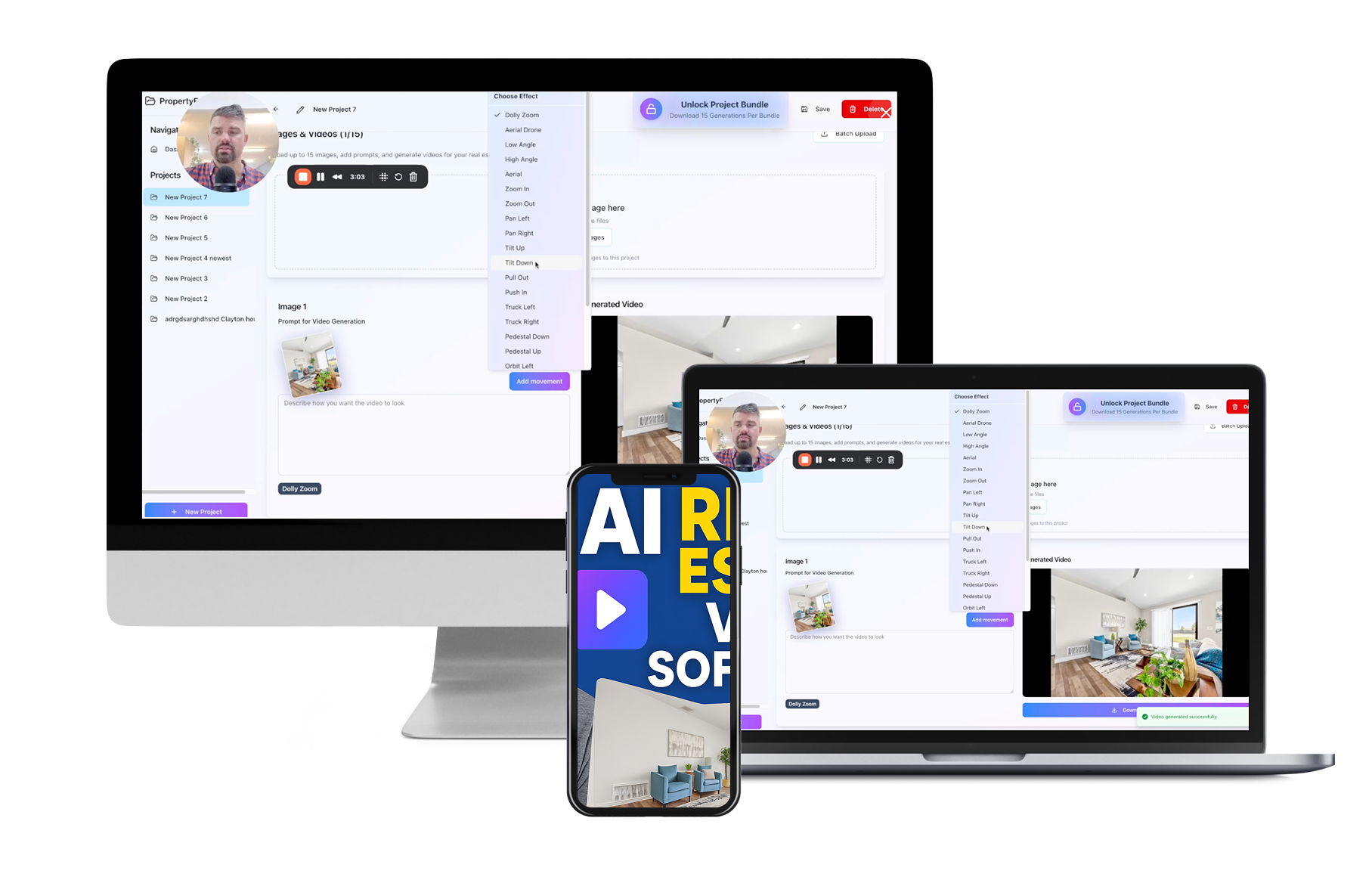
How Using AI in virtual Tours is Revolutionizing Real Estate
In the rapidly evolving digital landscape, using AI in virtual tours has emerged as a groundbreaking development, offering transformative benefits for industries like real estate and tourism. By seamlessly integrating artificial intelligence, virtual tours become more interactive, engaging, and efficient, providing users a compelling way to explore properties or destinations without ever leaving their homes.
The Rise of AI technology in Virtual Tours
With the advancement of AI technology, virtual tours have become more than just a novel way to showcase a property—they are now a critical tool in real estate marketing strategies. AI enhances the user experience by providing interactive discovery techniques that adapt to user preferences and behaviors.
How Does AI Enhance Virtual Tours?
Automated Navigation: AI can guide users through the tour in a logical sequence, ensuring nothing is missed.
Predictive Customization: By analyzing user behavior, AI personalizes the experience, such as highlighting features that are most likely to interest a specific viewer.
Detailed Analytics: Offers insights into user interactions, such as which areas of the tour are most engaging, helping tour creators refine future content.
Benefits of Using AI in Virtual Tours
Incorporating AI in virtual tours offers several advantages that enhance both the user and client experience.
Boosted Engagement
Using AI in virtual tours results in interactive elements that keep users engaged longer, which is a crucial factor in conversion rates. Users can interact with AI-infused environments that respond to their actions and preferences.
Improved Data Collection and Analysis
AI technology in virtual tours can collect and analyze vast amounts of data regarding user interactions. This collected data enables refined targeting for marketing efforts and improved property presentation strategies.
Applications of AI in Virtual Tours
Real Estate
The application of AI in real estate virtual tours is the most apparent as it enables potential buyers to view properties from remote locations. Users can virtually walk through a house, inspect features, and get a feel for the space.
Enhanced Property Showcases: AI provides a more immersive experience, leading to better-informed decision-making.
Time Efficiency: Reduces the necessity for in-person visits, saving time for both real estate agents and clients.
For more on enhancing real estate virtual tours, visit this resource.
Tourism
Using AI in virtual tours is also proving beneficial in the tourism industry, offering a glimpse into destinations worldwide.
Personalized Tours: AI tailors experiences based on user interests and past behavior.
Language Customization: AI tools provide real-time translations, making tours accessible to an international audience.
Technologies Enhancing AI in Virtual Tours
Several AI-driven technologies are paving the way for more sophisticated virtual tours.
Machine Learning
Machine learning algorithms process and analyze data to predict user preferences, offering a more customized experience. This enables tours to dynamically adjust paths and highlight points of interest based on real-time user feedback.
Augmented Reality (AR) and Virtual Reality (VR)
AR and VR technologies create immersive experiences that enhance virtual tours significantly, providing users the sensation of physical presence in a digital space. AI algorithms play a crucial role in rendering realistic environments and interactions.
Future Trends in AI-Powered Virtual Tours
As we look toward the future, the integration of AI in virtual tours is set to increase. Emerging trends include greater personalization, enhanced analytics capabilities, and deeper integration of realistic simulations.
Hyper-Personalization: AI will offer experiences catered precisely to individual tastes and preferences, making virtual tours even more engaging.
Integration with IoT: Using interconnected devices, AI can offer real-time data during tours, such as live traffic or weather updates.
Virtual Staging: AI will enable virtual staging of homes and destinations, enhancing visualization without the need for physical setups.
Unlocking More Potential
The evolution not only revolutionizes how we view spaces but also opens new revenue streams and business models, fundamentally changing consumer interactions with virtual environments.
To explore advanced AI tools for creating virtual tours, check out this resource.
Conclusion: Embracing AI in Virtual Tours
The transformative impact of using AI in virtual tours is undeniable. These technologies enhance engagement, provide powerful analytics, and offer personalized experiences, revolutionizing how industries showcase and consumers experience digital spaces. As the landscape continues to evolve, staying ahead of trends by embracing advanced AI solutions will be crucial.
For those interested in incorporating AI into virtual tours, exploring platforms like this resource can offer useful tools and insights.
By diving into the world of AI-powered virtual experiences, businesses can stay competitive and meet buyer expectations effectively. It's an exciting time for unveiling spaces in new, imaginative ways through technology.
Call to Action
Ready to enhance your virtual tours with AI? Start exploring today and experience the future of digital showcasing.
For any questions or further guidance, feel free to reach out or leave a comment below.



